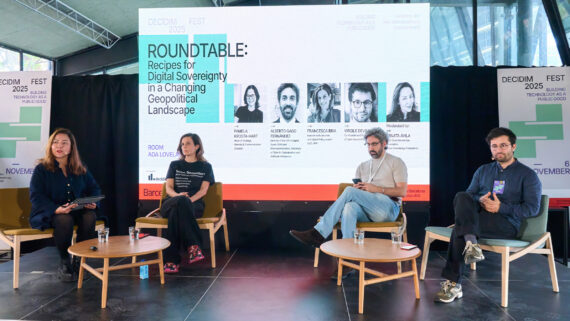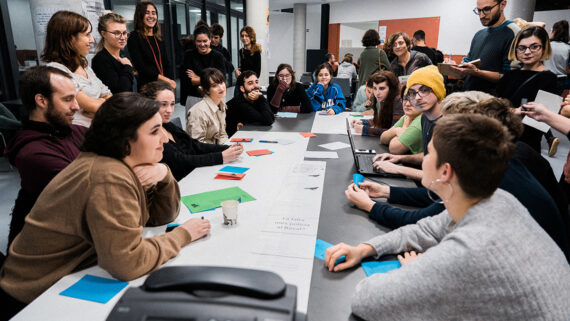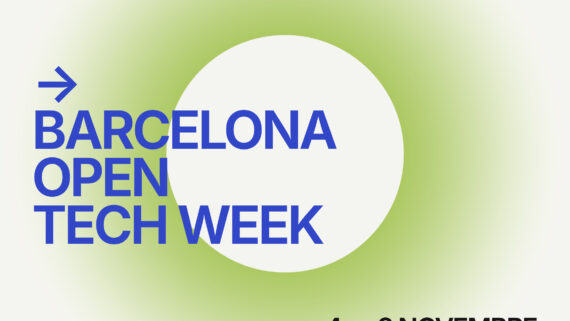Students from Institut l'Alzina are taking part in the project "I Got Lost in the Scroll" with the Canòdrom, creating their own content to talk about beauty standards, addiction, and misinformation.
The infinite scroll no longer hooks younger generations as much. At least, that was the aim of this project involving a group of twenty 9th-grade students from Institut l’Alzina, in the Congrés-Indians neighbourhood. They dove into this initiative to rethink their relationship with social media. The project, titled «I got lost in the scroll. Youth and Social Media», was carried out in collaboration with the Canòdrom, the Digital and Democratic Innovation Hub as part of the school’s research, creation, and service programme.
Over the course of a term, the students collectively reflected on the social, personal, and political impacts of digital life, creating short audiovisual pieces such as Reels or TikToks, with a critical yet creative perspective. The result? Capsules addressing topics like screen addiction, Instagram’s beauty standards, fake news, AI bias, digital privacy, and the economic model of big tech companies, among others.
This fun and participatory proposal allowed students to choose both the topics and the format: real or fictional interviews, parodies, fictional scenes, humorous or informative content. The objective was clear: to use the language and platforms they know in order to question them from within. They started by talking about the time they spent consuming this content, but soon realised that behind every scroll lie political, technological, and social decisions that affect us more than we think. Thanks to the guidance of Canòdrom, the students analysed their relationship with social media and its impact, learned open-source content creation tools, and found ways to express themselves freely and critically on these topics.
The project aims to connect global debates about the limits and risks of social media with younger audiences, such as addictive algorithms, digital identity, or personal data vulnerability. While some discourses advocate limiting or banning its use, Canòdrom invites young people to analyse and build their own narrative.
You can find the full videos on the Canòdrom video channel, and they aim to be a tool for sparking peer-to-peer debate. Because it’s not about saying that social media is bad, but about having the tools not to get lost in the scroll.







